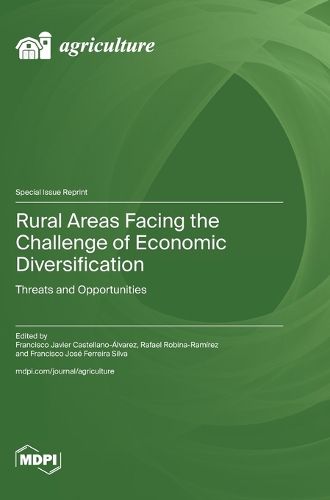Readings Newsletter
Become a Readings Member to make your shopping experience even easier.
Sign in or sign up for free!
You’re not far away from qualifying for FREE standard shipping within Australia
You’ve qualified for FREE standard shipping within Australia
The cart is loading…






This title is printed to order. This book may have been self-published. If so, we cannot guarantee the quality of the content. In the main most books will have gone through the editing process however some may not. We therefore suggest that you be aware of this before ordering this book. If in doubt check either the author or publisher’s details as we are unable to accept any returns unless they are faulty. Please contact us if you have any questions.
In the 1990s, the European Commission, through the then-novel Leader Initiative, launched rural development programs whose main objective was economic diversification based on the development of new recreational, touristic, or agro-industrial uses that were emerging. The modest size of the investments associated with these programs and their participatory development models often ensured that these projects were implemented harmoniously in economic, social, and environmental terms. However, there is now a growing interest in other types of investment in rural areas, such as renewable energies, diffuse industrialization projects, and even the extraction and processing of strategic minerals. These investments can be valuable alternatives for achieving the longed-for economic diversification, although it is no less true that they involve abruptly altering the rural environment's traditional agricultural and livestock uses. This Special Issue provided scientific and academic evidence regarding the implementation of these two types of projects: their long-term viability, their impact on the demographic and economic structures of the regions or districts in which they are implemented, and the change in traditional land uses, as well as any other indicators related to the socio-economic development of these environments. This endeavor also included some case studies, which, based on different methodological approaches, approach the subject under study in developed countries and developing regions of the world affected by the same problems.
$9.00 standard shipping within Australia
FREE standard shipping within Australia for orders over $100.00
Express & International shipping calculated at checkout
This title is printed to order. This book may have been self-published. If so, we cannot guarantee the quality of the content. In the main most books will have gone through the editing process however some may not. We therefore suggest that you be aware of this before ordering this book. If in doubt check either the author or publisher’s details as we are unable to accept any returns unless they are faulty. Please contact us if you have any questions.
In the 1990s, the European Commission, through the then-novel Leader Initiative, launched rural development programs whose main objective was economic diversification based on the development of new recreational, touristic, or agro-industrial uses that were emerging. The modest size of the investments associated with these programs and their participatory development models often ensured that these projects were implemented harmoniously in economic, social, and environmental terms. However, there is now a growing interest in other types of investment in rural areas, such as renewable energies, diffuse industrialization projects, and even the extraction and processing of strategic minerals. These investments can be valuable alternatives for achieving the longed-for economic diversification, although it is no less true that they involve abruptly altering the rural environment's traditional agricultural and livestock uses. This Special Issue provided scientific and academic evidence regarding the implementation of these two types of projects: their long-term viability, their impact on the demographic and economic structures of the regions or districts in which they are implemented, and the change in traditional land uses, as well as any other indicators related to the socio-economic development of these environments. This endeavor also included some case studies, which, based on different methodological approaches, approach the subject under study in developed countries and developing regions of the world affected by the same problems.